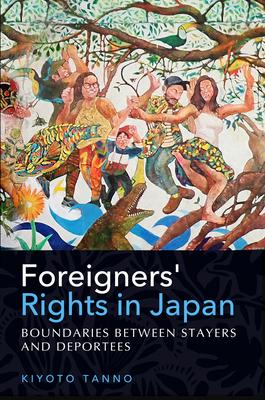Do foreigners really have 'human rights' in Japan? This book sheds light on the way Japan views foreigners by examining court cases initiated in the wake of the issuance of deportation orders.
'Special permission to stay' is issued to foreigners who have been given deportation orders when the state finds special circumstances that should be taken into consideration that merit the granting of residence status. A 'residence status' is required for foreigners to live in Japan, and what foreigners can do in Japan varies greatly depending on which status they have. This is the system through which Japan, as a nation, 'evaluates' foreigners and determines the extent to which it will afford them rights.
This book closely observes the court records of various cases involving requests for special permission to stay in Japan, and analyzes the decision-making process made by the government. It examines the logic and ideology applied by the state to define the line between 'acceptable' and 'unacceptable' foreigners, shedding light on the structures embedded within Japan that determine who can stay in the country and who cannot.
